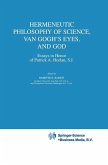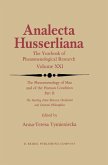Hermeneutics was elaborated as a specific art of understanding in humanities. The discovered paradigmatic, historical characteristics of scientific knowledge, and the role of rhetoric, interpretation and contextuality enabled us to use similar arguments in natural sciences too. In this way a new research field, the hermeneutics of science emerged based upon the works of Husserl, Merleau-Ponty, Heidegger and Gadamer. A dialogue between philosophers and scientists begins in this volume on hermeneutic approaches to physics, biology, ethology, mathematics and cognitive science. Scientific principles, methodologies, discourse, language, and metaphors are analyzed, as well as the role of the lay public and the legitimation of science. Different hermeneutical-phenomenological approaches to perception, experiments, methods, discovery and justification and the genesis of science are presented. Hermeneutics shed a new light on the incommensurability of paradigms, the possibility of translation and the historical understanding of science.
Dieser Download kann aus rechtlichen Gründen nur mit Rechnungsadresse in A, B, BG, CY, CZ, D, DK, EW, E, FIN, F, GR, HR, H, IRL, I, LT, L, LR, M, NL, PL, P, R, S, SLO, SK ausgeliefert werden.









